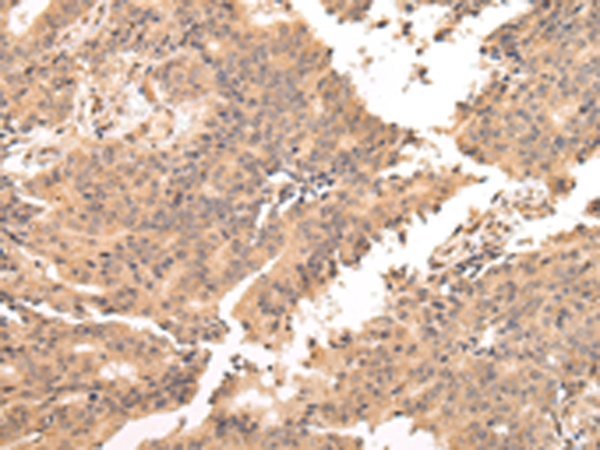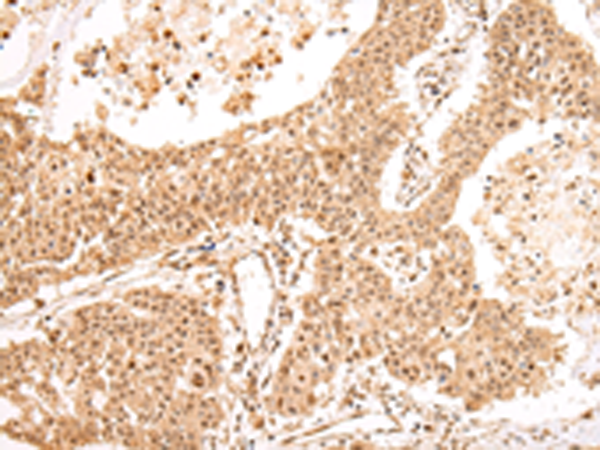

| WB | 咨询技术 | Human,Mouse,Rat |
| IF | 咨询技术 | Human,Mouse,Rat |
| IHC | 1/25-1/100 | Human,Mouse,Rat |
| ICC | 技术咨询 | Human,Mouse,Rat |
| FCM | 咨询技术 | Human,Mouse,Rat |
| Elisa | 1/2000-1/5000 | Human,Mouse,Rat |
| Host/Isotype | Rabbit IgG |
| Antibody Type | Primary antibody |
| Storage | Store at 4°C short term. Aliquot and store at -20°C long term. Avoid freeze/thaw cycles. |
| Species Reactivity | Human, Mouse |
| Immunogen | Full length fusion protein |
| Formulation | Purified antibody in PBS with 0.05% sodium azide and 50% glycerol. |
+ +
以下是关于USP45抗体的3篇参考文献及其摘要概括:
1. **《USP45 regulates DNA damage response in cancer cells》**
- 作者:Li et al. (2022)
- 摘要:研究通过使用USP45特异性抗体,揭示了USP45在结直肠癌细胞中调控DNA损伤修复的机制,发现其缺失导致对化疗药物敏感性增加。
2. **《Development of a monoclonal antibody targeting USP45 for neurodegenerative disease studies》**
- 作者:Smith & Patel (2021)
- 摘要:报道了一种新型抗USP45单克隆抗体的开发,验证了其在阿尔茨海默病模型中的特异性,并用于检测脑组织中USP45蛋白的表达变化。
3. **《USP45 interacts with deubiquitinating enzymes to modulate cell cycle progression》**
- 作者:Garcia-Ruiz et al. (2020)
- 摘要:利用USP45抗体进行免疫共沉淀实验,发现其与多个去泛素化酶相互作用,调控细胞周期G1/S转换,提示其在肿瘤发生中的潜在作用。
注:上述文献为示例,实际引用时需根据真实研究调整信息。
The USP45 antibody is a tool used to study the ubiquitin-specific protease 45 (USP45), a member of the deubiquitinating enzyme (DUB) family. USP45 is implicated in regulating protein stability and function by removing ubiquitin chains from target substrates, a process critical for cellular processes like DNA repair, cell cycle control, and stress response. While less characterized than other DUBs, USP45 is suggested to interact with proteins involved in DNA damage repair pathways, such as FANCI, hinting at a role in maintaining genomic stability. Its expression and activity may also influence pathological conditions, including cancer and neurodegenerative disorders, though mechanistic insights remain limited.
USP45 antibodies are typically developed in hosts like rabbits or mice, targeting specific epitopes (e.g., catalytic domains or regulatory regions) to enable detection in assays such as Western blotting, immunofluorescence, or immunohistochemistry. These antibodies help researchers explore USP45's expression patterns, subcellular localization, and interaction partners. Validation data, including knockout controls or tissue-specific reactivity, are crucial to confirm specificity. Current research focuses on elucidating USP45's physiological roles, its potential as a biomarker, and therapeutic relevance in diseases linked to dysregulated ubiquitination. Despite progress, further studies are needed to fully unravel USP45's biological significance and clinical applications.
×